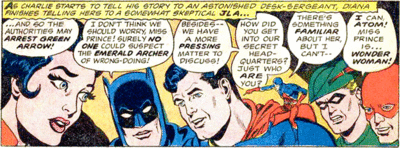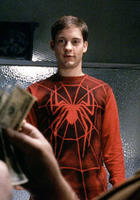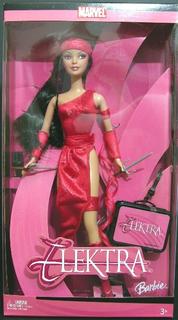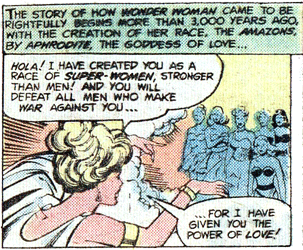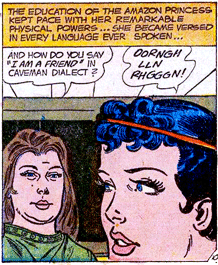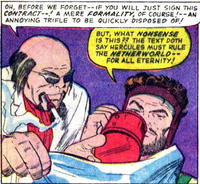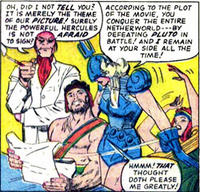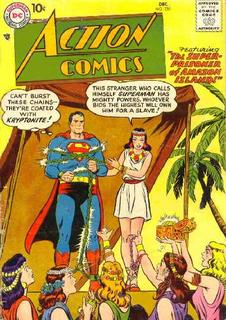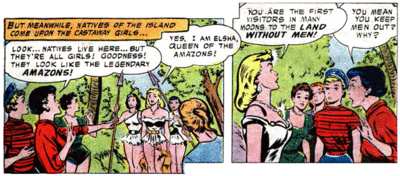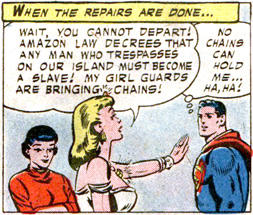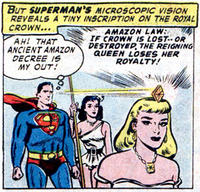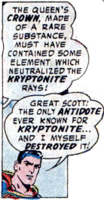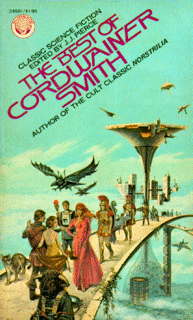When my friend
Sleestak (who always says nice things about me, so it's about time I gave him a well deserved plug for his excellent blog) did a piece about Kate Bush over at
Lady, That's My Skull which prompted a comment about her dressing up as Red Sonja, this set off my
Amazon Trivia Sense. In fact she was dressed as
Raven.
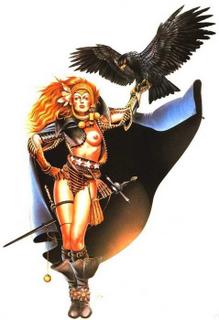 Raven, Swordmistress of Chaos
Raven, Swordmistress of Chaos was the star of a series of Five novels by Robert Holdstock and Angus Wells writing under the name of Richard Kirk. They collaborated on the first book and subsequently wrote alternate volumes, Holdstock doing 2 and 4, Wells doing 3 and 5. I was at a convention once where Holdstock talked about Raven. He said that it had been their intention to playfully subvert the conventions of heroic fantasy, thus the heroine named Raven is a blonde, and where most stories of this type are set in a large island landmass, Raven is set around an inland sea.
The original art for the book covers was done by Chris Achilleos. It's some time since I read the books so I cannot now remember how accurate his costume designs for Raven are to the description in the story. Kate Bush wore a costume based on this design (with the addition of a studded bra for the sake of modesty) in the video for her song
Babooshka.
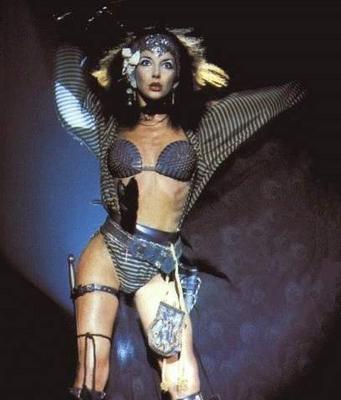
Babooshka is an interesting song. The lyrics tell of a woman who wants to test her husband's fidelity by attempting to seduce him as another woman, but who finds a whole new passion for him as a result.
She wanted to test her husband.
She knew exactly what to do:
A pseudonym to fool him.
She couldn't have made a worse move.
She sent him scented letters,
And he received them with a strange delight.
Just like his wife
But how she was before the tears,
And how she was before the years flew by,
And how she was when she was beautiful.
She signed the letter
"All yours,
Babooshka, Babooshka, Babooshka-ya-ya!
All yours,
Babooshka, Babooshka, Babooshka-ya-ya!"
The video, somewhat incongrously has her dancing around in her Raven outfit and waving her sword. It doesn't seem to work with the song on any level, other than to possibly reinforce a theme of female assertiveness. But what is even stranger is the name the woman in the song takes for her femme fatale. Babooshka is from the russian word
babushka which means "
grandmother" or "
old lady".
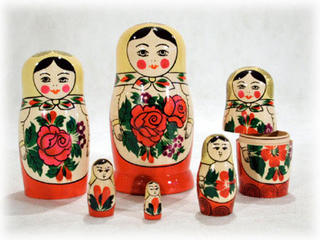
There is a another very subtle and clever connection that works. Babushka is also another name for a type of nested Matryoshka doll, known as a
russian doll in the UK; a simple wooden shape with an elaborately painted figure on it that opens to reveal another one inside it, and that contains another and another. These can contain a couple or as many as fifty dolls, and would fit the song very nicely as a symbolic name for a woman finding a new aspect inside herself, but I've never seen this interpretation proposed before.
In fact Kate Bush just says this on the subject:
Yes, well apparently it is grandmother, it's also a headdress that people wear. But when I wrote the song it was just a name that literally came into my mind, I've presumed I've got it from a fairy story I'd read when I was a child. And after having written the song a series of incredible coincidences happened where I'd turned on the television and there was Donald Swan singing about Babooshka. So I thought, "well, there's got to be someone who's actually called Babooshka.'' So I was looking through Radio Times and there, another coincidence, there was an opera called Babooshka. Apparently she was the lady that the three kings went to see because the star stopped over her house and they thought "Jesus is in there.'' So they went in and he wasn't. And they wouldn't let her come with them to find the baby and she spent the rest of her life looking for him and she never found him. And also a friend of mine had a cat called Babooshka. So these really extraordinary things that kept coming up when in fact it was just a name that came into my head at the time purely because it fitted.
She is mistaken about the spelling (though this quote is from an interview so it may just be the journalist who is ignorant). Although phonetically very similar, the only usage I have found anywhere that uses the double "o" construction is in her song. Everywhere else it is spelled with a "u" or "ou".
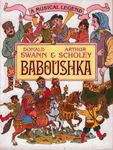
It's hardly a coincidence that she saw Donald Swan singing about Baboushka and then found reference to an opera of the same name in a TV listings magazine, as it was probably the same show . Donald Swan was co-writer of the opera
Baboushka (although he also wrote a song called
Baboushka's Carol), and it was broadcast on british TV in 1979. Both are based on a russian folktale of the old woman,
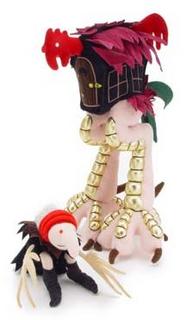
Baboushka who was too busy to accept The Three Kings' invitation to join them on their journey to Bethlehem, and now seeks the Christ-child throughout the world, leaving presents for good children as she passes.
The fairytale she refers to is probably the story of
Baba Yaga, a cannibalistic witch who looks like a little ugly old woman and lives in a hut that stands on giant chicken legs.
As for how stories about little old russian women prompted the name for Kate Bush's character who was rediscovering her
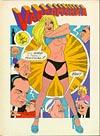
sexuality; my best guess is that she had confused two very similar sounding names, and was actually thinking of
Varoomshka, a sexy politically satirical newspaper strip written and drawn by
John Kent that ran in
The Guardian, whose heroine is a far more appropriate source for her character.
